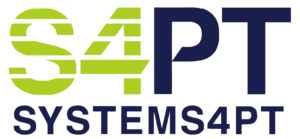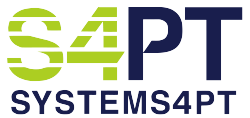The 2019 MIPS Debate.
5 Arguments That Are Now Settled
Throughout 2019, outpatient rehab’s two leading EMRs debated about MIPS in a series of “blog wars”. The two companies had contrasting views about MIPS and the sparring between them was at times quite pointed, even accusatory.
Now that we’re through 2019, we thought it would be fun to revisit this debate. Which EMR got it right? And which was wrong?
Debate #1: MIPS Participation is a Necessity
“Practices need to take MIPS seriously. MIPS will separate outpatient rehab into winners and losers. And the losers will pay the winners. Paper practices will be driven out as CMS rewards the practices who embrace technology and punishes those who don’t.”
For the past 14 months, the above has been Systems 4PT’s perspective.
The other leading EMR labelled these words as “fear mongering,” recommending that the practice sit back and wait, ”After all, an incentive that small may not be worth the effort you put in—or the amount you pay a vendor—to collect and submit your data. When the data is not substantive enough to make a decision, go with your gut.”
The CMS settled this debate on August 14th when the 8% 2021 PT/OT fee schedule reduction and 15% 2022 assistant reduction were announced. MIPS is the only way to offset these reimbursement cuts.
We’re pleased that all Systems 4PT practices who are opting into MIPS for 2019 will enjoy rewards and bonuses in 2021. As the MIPS rules tighten up in 2020, these practices have a distinct scoring advantage over new participants who will be “trying to figure out how things work”.
Debate #2: Is MIPS Another “Here Today, Gone Tomorrow” Medicare Program or Part of Our Future?
From the start, Systems 4PT saw MIPS as “a necessary evil” and we advised all practices to participate. 95% of our customers followed our advice and they’re happy they did. To us, it’s obvious – the CMS is trying to transform healthcare into a paperless, integrated, interoperable “cloud.” MIPS penalties and rewards are “the stick and carrot” being used.
The other leading EMR provided this contrasting advice: ”Maybe the MIPS program will endure as a pillar of the transition to value-based care delivery; maybe not. We’ve all seen what’s happened to Medicare’s previous reporting programs (hello, PQRS and FLR). And even if you end up having to report at some point, why not sit back and use this year to see what happens with the program”
Which perspective is correct? As with the previous point, this debate is settled as the other EMR is now recommending that their customers “Reconsider MIPS”. Unfortunately, it’s too late for these practices to partially offset the 8% payment reductions with MIPS rewards in 2021.
Debate #3: Qualified Clinical Data Registries. Necessary or Not?
Systems 4PT made it clear that working with a QCDR (Qualified Clinical Data Registry) maximizes your options for success with MIPS. We believe that this is by design. Because of this, Systems 4PT has submitted data via our QCDR on a weekly basis throughout 2019.
The other leading EMR included this topic in a blog entitled “5 MIPS Lies You’ve Been Told—But Should Not Believe,” saying, “if you are required to participate—or if you choose to voluntarily report—you can submit your data using a Qualified Clinical Data Registry (QCDR), but you don’t have to. You can absolutely comply with MIPS reporting requirements with a certified registry, like [ours].”
Once again, we have a debate, and a testy one at that! Who’s right? Who’s wrong?
This difference of opinion was resolved recently when the other EMR proudly announced they’re working with a QCDR for MIPS submission in 2020.
Debate #4: MIPS is Overly Complex and Requires Technology
MIPS is a topic that very few EMR companies thoroughly understand.
The common approach (used by the other leading EMR) is to enable therapists to select the appropriate MIPS codes and proceed with their documentation. Easy, right?
With over 4,000,000 potential permutations of MIPS codes in each evaluation, Systems 4PT recognized that the opportunities for error were enormous. And with 7% takebacks (9% in 2020), we needed a zero-risk solution. Beyond complex coding, MIPS requires 150 to 500 words of measure-specific defensive documentation in every eval. Complexities abound. For example, some MIPS measures require the additional of extra ICD-10’s in the list of diagnosis codes. With low-tech EMR “it’s all on the therapist” to get things right.
Systems 4PT initiated our solution with a unique perspective. Medicare is obviously judging you. But Medicare isn’t judging you with an army of MIPS employees. They’re judging you with a super-computer. The way to win with MIPS is to create, comply, and submit MIPS data, using your own super-computer. That’s exactly how our practices operate. Systems 4PT practices comply with the complexities outlined above with a 20-second workflow, covering both coding and defensive documentation. Our QCDR recently finalized auditing our practices’ coding and defensive documentation saying, “It’s the most consistent, compliant, complete defensive documentation we’ve ever seen.”
Compliant MIPS submission with the other leading EMR will add 5-7 minutes per eval. Our audit-tested approach takes 20 seconds, leaving you 5-6 more minutes for hands-on treatment in every evaluation.
Debate #5: Is MIPS Scoring Feedback Important or Not?
95% of Systems 4PT practices participated in MIPS though 2019. Our practices were updated with by-measure performance, and trending scores, at each quarter end. By-measure feedback is essential because it’s the only way a practice “can see what isn’t working” and make necessary adjustments. The results speak for themselves: Our practices’ average trending MIPS score is 95.6 points, DEEP in the bonus territory. 60% of our practices are trending toward 100 points! Take a bow!
And the debate from the other leading EMR? Well, this is a debate of omission. To our knowledge, they haven’t updated anyone on trending MIPS scores. Their practices are blind. And sadly, many of them will end up paying our 100-point performers.
The Debate Continues: Who is a Trustworthy Business Partner? And Who is an Opportunist?
After a year of giving bad advice to their practices, the other leading EMR is suddenly advising their customers “to reconsider” participating in MIPS. What caused the dramatic change of heart? Some people conclude that the EMR finally did their homework. Still, others feel that the bank owned EMR sees MIPS as an exciting new revenue stream and now recommends that you “reconsider” opting into MIPS in 2020……for a nominal fee.
Here’s what a trustworthy business partner looks like:
- In 2018, Systems 4PT invested hundreds of hours research by senior management to fully understand MIPS.
- We concluded that success with MIPS was one of many factors necessary to thrive in tomorrow’s tightening environment
- As such we advised that all Systems 4PT practices opt into MIPS, and 95% of them did
- We innovated an audit-tested, 20-second therapist workflow
- We provided by-measure scoring trends at each quarter end, including what steps to take to improve scoring
- The result is audit-tested 95.6 average points, which is above the “MIPS rewards” status and DEEP in “MIPS bonus” territory
- All provided, at no additional charge




